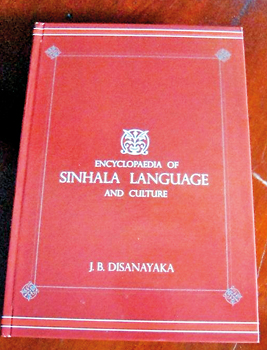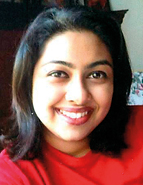Elegant and wide-ranging essays
View(s):“Musings of Old Age” by M.B.Mathmaluwe Published by S.Godage & Bros. Reviewed by Tissa Devendra
I toyed with heading this review ‘Mathmaluwe @ Ninety’ but, on second thoughts, realized that it would emphasize the writer’s longevity rather than the style and content of this latest collection of his essays.[The last was ten years ago]. However, I cannot but refer to his age where Mathmaluwe joins the distinguished array of men who spurned the pitfalls of old age to produce masterpieces – Picasso, Monet, Bertrand Russell and our own George Keyt – well into their ninth decade.
Mathmaluwe never ceases to amaze with the breadth of his interests that he writes about so sagely and elegantly. He is an alumnus of the Maharagama Government Training College in the ‘glory days’ when English was taught by Reggie Siriwardena and Douglas Walatara. Mathmaluwe’s body of writing has done his gurus proud. I cannot think of any essayist whose interests are so wide-ranging and fascinating – they range from the murder of Leon Trotsky to a perceptive analysis of the languages that Arahant Mahinda and the early Buddhist missionaries employed in their discourses in the many lands and peoples they travelled to. This is a subject that all too few scholars have studied. He brings a unique perspective to his studies on the Buddha Dhamma and its fascinating history.
He is the perfect exemplar of the Sri Lankan intellectual who is equally fluent in Sinhala and English and loves the literature of both these great languages. His love of literature is universal and not restricted by language, period or geography. I particularly admire his sensitive treatment of two modern Sri Lankan poets – one in Sinhala and the other in English. The Sinhala poet is Ariyawansa Ranaweera. The writer clearly states that his intention in his essay is meant to introduce to our “English speaking elite”
Ranaweera’s unique poetry of the simple pleasures of the householder’s life and domestic bliss. The width of the essayist’s reading enables him to tease out the various influences in these poems – from T.S.Eliot to Li Po [Personally, I detect a fleeting touch of Philip Larkin].
He contrasts the contemporary sensibility of Ranaweera’s poetry with the Colombo School which has reached a dead end, limited by metre and rhyming quatrains.The writer’s friend Upananda Karunatilaka’s poetry was in English. Here we have a fine and sensitive account of the poet’s life and his lyrical, but too little known, poems of love and loss.
He is fascinated by the poetry and turbulent life of the great Latin American Pablo Neruda who had a brief sojourn in Colonial Ceylon. Tolstoy, the tragic colossus of Russian literature, is placed on a pedestal by an extensive essay on his achievements honouring the centenary of his death. Lesser known aspects of Einstein are discussed illustrating the sad truth that a great genius is not necessarily a paragon of virtue. The same thesis is exemplified in the essay on Woolf, in a review of Christopher Ondaatjie’s “Woolf in Ceylon”. The novelist of Village in the Jungle is as distinct from the Civil Servant in Hambantota, as the keeper of Virginia’s flame and the Fabian activist and founder of the Hogarth Press.
The sympathetic study of Ivor Jennings’ ‘Road to Peradeniya’ reveals a man far removed from the once-popular image of him as a closet imperialist and ‘eminence grise’ of OEG and DS. He was a brilliant scion of a working class family who never had to pay a penny for his education – but, ironically, was against Kannangara’s Free Education Scheme. The descriptive essay on Aung San Suu Kyi and Myanmar/Burma is titled ‘A Tragedy of our Time’ is dated 2009, since when much water has flown down the Irrawady. But it remains a useful account of a ‘dark age’ in that country’s modern history. Nearer home is his admiring review of the Memoirs of Justice Weeramantry- a distinguished scholar, fine human being and brilliant jurist.
Two essays on Sigiriya reveal his fascination with that magnificent masterpiece of Sinhalese civilization and his readiness to cross swords with scholarly theories which he finds untenable. He has always kept abreast of developments in the literary scene as is evident in his analysis of the contribution to Sinhala of that pioneering ‘little’ journal “Samskriti”. He also writes on such contemporary issues as the socio-economic impact of Free Education – a subject he knows ‘inside out’ as a Principal of Central Schools. The role of the national press and the rising tide of environmental degradation have been dealt with a personal perspective.
Mathmaluwe’s love of books on travel and adventure is evident in his account of S.D de Lanerolle’s “Vana Nadiya” – a boat trip down the Mahaveli in 1951 when it ran peacefully and the only danger was from elephants. He is also puzzled by the apparent lack of interest that Sinhala readers have in this genre. Mathmaluwe concludes his essays with an admiring account of the greatest voyage of the last century – the Kon Tiki expedition. My only regret is that he did not include the story of his own boyhood adventure of a hunting trip with stalking buffaloes in the wilderness surrounding his very own ‘village in the jungle”.
Follow @timesonlinelk
comments powered by Disqus























